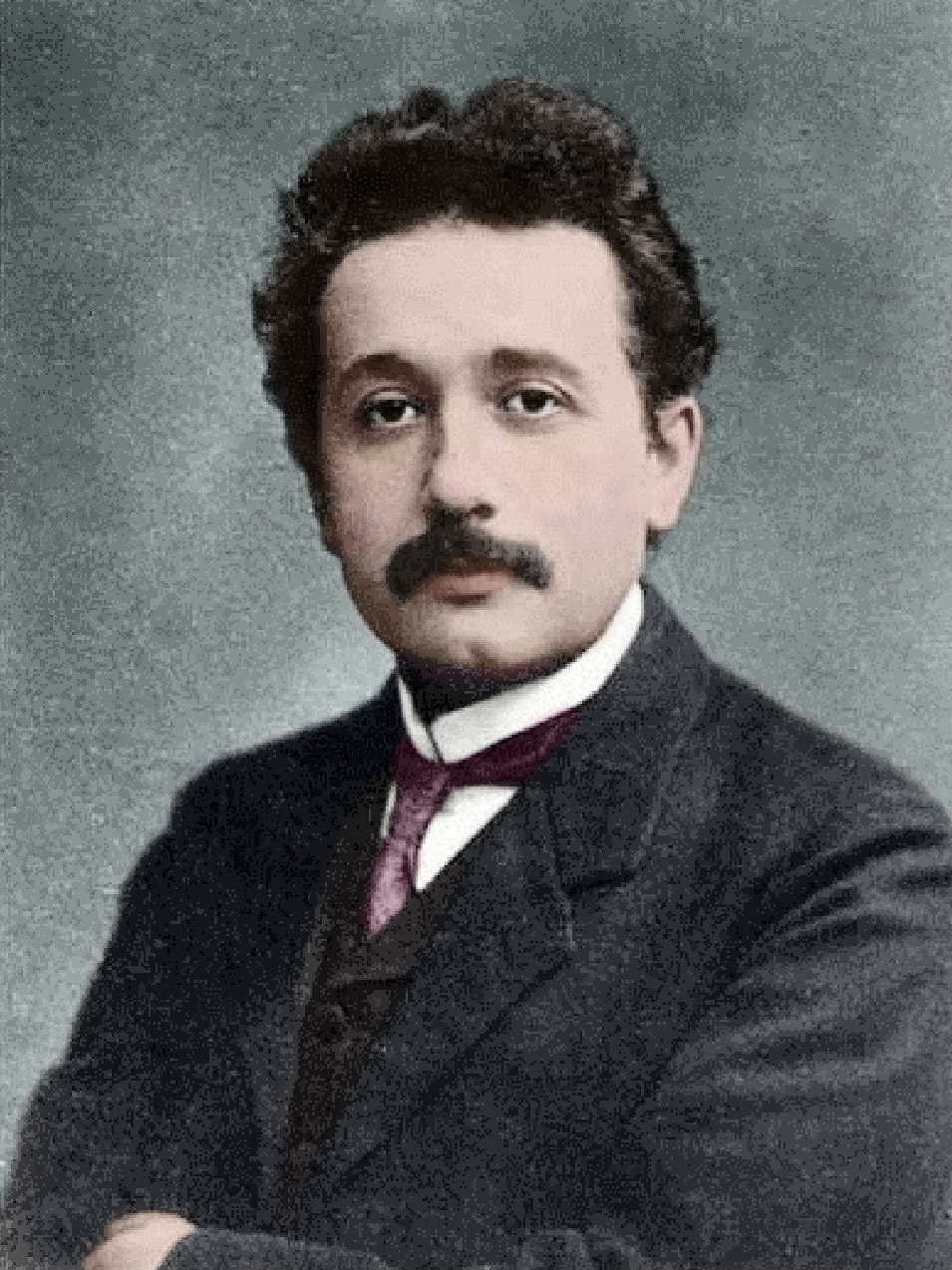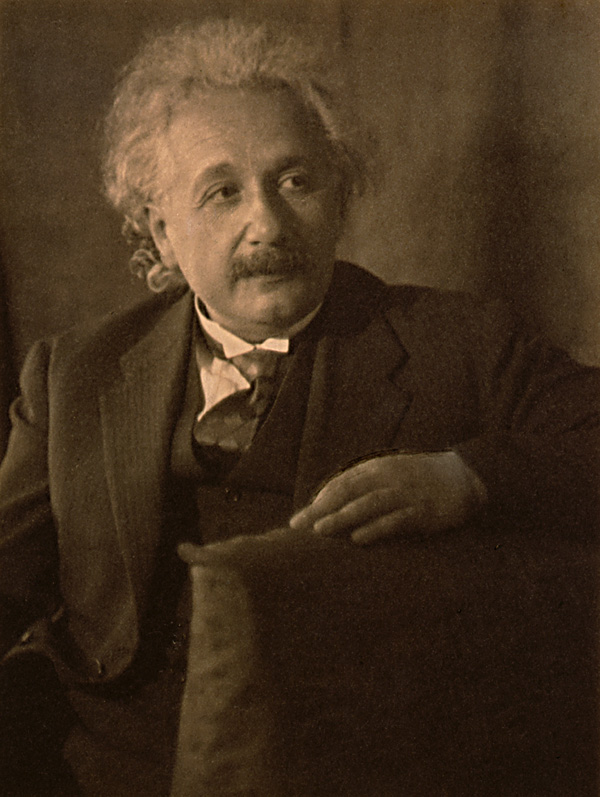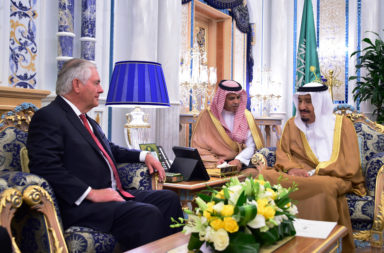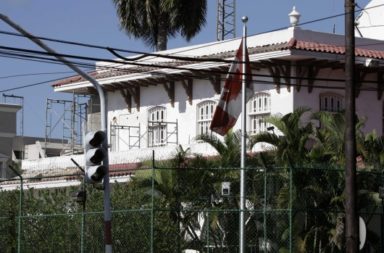“Imagination Is More Important than Knowledge.” Therefore We Need a New Creative Strategy for More Freedom in the World
Yes indeed, Albert Einstein was a pacifist, a questioner of authority, and an agitator. He was also a spearhead for freedom, human rights, respect for the dignity of humankind, and for a better, safer world.
Today’s foreign and security policy experts could learn some very important lessons on how to make the world more secure, freer und more just, from the intellectual initiatives of this once-in-a-century genius.
TIME magazine once described the character of its “Person of the Century”:
“One person clearly stands out as both the greatest mind and paramount icon of our age: the kindly, absentminded professor whose wild halo of hair, piercing eyes, engaging humanity and extraordinary brilliance made his face a symbol and his name a synonym for genius, Albert Einstein.”
Einstein was not only a physicist but also a particularly political person, torn between the dream of an intact, better world of equality and brotherhood without violence and armaments, and the reality of the increasing nationalism and militarism of Adolf Hitler.
“My life is divided between equations and politics,” he said on several occasions. He published over 190 essays on political topics.
What are Albert Einstein’s most important lessons for foreign and security policy in the twenty-first century?
Clearly, he believed in an active fight for justice. “Pacifism must be abandoned in the fight against dictatorships” he once remarked.
In fact, in a letter to a student at Missouri University on July 14, 1941 he wrote “organized power can be opposed only by organized power. Much as I regret this, there is no other way”.
At heart, Albert Einstein remained a pacifist throughout his life, occasionally professing his beliefs openly, occasionally suppressing them. In the struggle against the German dictator Adolf Hitler, according to the logic of power and deterrence, he was forced to abandon his belief in a peaceful, better world without arms.
By the time the Nazis came to power in 1933, he had changed his stance and supported the use of military force:
“What I will tell you will greatly surprise you,” he wrote to a Belgian pacifist. Because Nazi Germany was “obviously pushing toward war with all available means,” Einstein warned, “countries like Belgium and France had no choice but to build up their military defence.” (Letter to Alfred Nahon, 20 July, 1933 in: New York Times, 10 September, 1933)
At a meeting with Szilard and the fellow Hungarian-Jewish refugee physicist Eugene Wigner in Peconic, Long Island, Einstein was alarmed when Szilard explained why he was convinced that the Nazis were beginning an atom bomb project.
He based this belief on the breakthroughs and innovations of German scientists, and new evidence that Germany had begun stockpiling uranium. “Einstein was very quick to see the implications,” Szilard later wrote “and perfectly willing to assume responsibility for sounding the alarm.” (see Fred Jerome, The Einstein File, New York, 2002, p. 31 et seq.)
Einstein increasingly advocated force as the only alternative to the dictatorships of Hitler, Musolini, and Franco.
In today’s world, there are still forty-three dictators who suppress the citizens inside their countries and present a latent threat to other peoples on the outside. “Provocative weakness” (a term coined by foreign policy expert, Fritz Kraemer) only whets their appetite for a further expansion of their power externally through sheer force. Only a containment and military policy on the part of democracies can secure world peace.
The discussion concerning the prevention of an Iranian totalitarian atomic bomb, presented as a choice between war (with the U.S.A.) and diplomacy (with the EU), illustrates that this lesson of Einstein’s logic has not yet been understood.
Peaceful, diplomatic solutions only stand a chance when the threat of military power is there to back them up. This must not merely result in the stabilization of the Mullah-dictatorship in Tehran, but in the construction of a peace-loving democratic structure in Iran.
Einstein as the Prophet of a Humanistic and Civilized Arrangement for World Peace
In the “Manifesto to Europeans” published by Albert Einstein in 1917 during WW I, he called for an end to the war and for European cooperation. “Nationalist passion cannot excuse this attitude, which is unworthy of what the world has heretofore called culture.”
Even then it was clear that the great thinker saw no future in the excessive nationalistic thought and primarily militaristic philosophy of power, predominant not only in Germany but in all large societies of Europe of that time.
Einstein was right: exaggerated nationalism, militaristic frameworks of thought, combined with slavish obedience, comprised the three self-destructive engines of the German empire, resulting in the reduction of Europe to rubble and ashes in WW I and for the upheaval which led to both extreme totalitarian manifestations—communism and National Socialism—thus laying the foundations for WW II.
Einstein—a committed humanist—thought politically ahead of his time. He propagated freedom and human rights.
The European Union and NATO, as an alliance of civilized democracies, are today the realization of the then utopian-sounding goals of Einstein’s peace politics.
But are democracies—whose number has more than doubled from forty-three (in the early 1980s) to eighty-nine today, doing enough to follow the legacy of Einstein for more freedom in the world? Are we active or passive? Do we think of business first and only thereafter of morals à la Albert Einstein?
A New Way of Thinking
Einstein’s structure of thought and methodology reveal themselves best in his aphorisms in “New Thought.” He continually questioned, thought through, analysed, and designed in ways that transcended the already known, the recognized, the accepted, and the established. Some of his quintessential theses are:
- “Imagination is more important than knowledge.”
- “The significant problems we face cannot be solved at the same level of thinking we were at when we created them.”
Even today, the foreign and security policy of the West is dominated by a lack of new thinking; it is without imaginative capabilities and creativity.
Because the more than 80 democracies of the world are lacking “new thought” and a believable moral strategy to “shape a better world.”
On the surface, important international conferences at the highest level mechanically repeat structures of thought. Almost no one stands out with new creative concepts and plans by which we can design today’s world more peaceably and safely in the coming decades.
Western foreign policy is for the most part reactionary, rather than proactive in “shaping a better world.” Foreign policy is largely a mix of lifeless bureaucracy and fear, almost always reactive and never preventative. It too often contains a shot of cynicism as its actors secretly flirt with the forty-three global dictators regardless of their character, only because they happen to be in power or because they bring the promise of new business.
Democratically legitimate politicians continue to hesitate when they ought to take action against the forty-three remaining dictators on behalf of oppressed people in other countries.
“The significant problems we face cannot be solved at the same level of thinking we were at when we created them!”
The liberation of the former GDR and the countries of Eastern Europe from communism did not succeed because of clever, active freedom policies, but rather in spite of the inactivity of most European governments. These governments saw in the freedom fighters destabilizing rather than peacemaking elements, avoiding every form of contact and support. The people of Eastern Europe freed themselves!
Even today, in the great, democratic EU for example, relationships to the tiny, perpetual dictators are more important than supporting local democratic human-rights activists.
The sale of arms to the still non-democratic People’s Republic of China enjoys a higher priority among some European governments—merely to make more money with increased trade—than the support of democratic elements within this most important developing giant in Asia. Nor do the democratic states for that matter, prioritise peace and stability in Asia, and the protection of the most successful and largest Chinese democracy, Taiwan.
Most Western foreign ministers lack the imagination to conceive of how a democratic China, in the year 2025, could change world politics for the better. A democratic China, as a permanent member of the Security Council, would revolutionize the UN.
Unfortunately, up to now this country hasn’t found itself on the side of the forces for positive change. Because of oil contracts, China blocked much needed UN assistance in Darfur, and delivered rocket technology to Iran.
Also lacking is the psychological understanding that a peaceful transformation can only be brought about there through the long-term support of democratic elements (both within China and in Taiwan).
A foreign policy without a moral foundation is missing both heart and fire. It will, of necessity, not be taken seriously and is doomed to failure.
What we need is a new foreign policy, if possible, coordinated between the U.S.A. and the EU, characterized by new thought. It must bring together elements of both Realpolitik, and of moral policies. We need a union of power and soul.
It is perfectly clear for all to see: today’s Europe is secure only because there is now more freedom and democracy than there was twenty years ago. The more than 10,000 nuclear weapons located in Russia do not present a threat because there is no hard dictatorship dominating their utilization now.
The support of freedom and human rights in Russia has to be re-analyzed on the basis of a new Einsteinian level of thought, and implemented with imagination. Only if Russia becomes more democratic, will it be able to join with the EU and become a part of the European democracies.
Long-term economic growth will only become possible with increased freedom. Only then, will millions of Russians become affluent instead of just a privileged few.
Why?
“Knowledge needs freedom. Modern economic systems require independent scientists, creativity à la Einstein, open discussion, and freedom of responsibility. All of this is increasingly incompatible with the demands of totalitarian, all-knowing, all-powerful dictators.”
The world’s wealth is concentrated in free countries. The lowest GNP per capita is found in countries that suffered, or still suffer from, dictatorship. African countries, for example, are not poor because they are African, but because they still live under dictatorship and have for over 500 years.
Russia is not rich despite its oil and other resources, because unlike similarly endowed states, it has had no democracy for over 700 years. The U.S. is rich and powerful because it gave its citizens freedom more than 200 years ago. West Germany was rich, East Germany poor. North Korea is extremely poor, South Korea rich. Vietnam is poor, Thailand rich.
Powerful countries are developed because they are free. Other countries are not because they are paralyzed by absolute, totalitarian dogmas. Freedom is the foundation for knowledge, development, and progress.
In the forty-three dictatorships in the world today, total GNP is only six percent of global domestic product. Eighty-five percent of the world’s wealth belongs to the people in democracies.
Why?
Modern economic systems require independent scientists, creativity à la Einstein, open discussion, and freedom of responsibility. All of this is increasingly incompatible with the demands of totalitarian, all-knowing, all-powerful dictators.
We will only be able to reach the UN’s stated goal of halving the number of people living in poverty through a strategy of democratization. It is not about the redistribution of wealth, but rather the creation of more political and economic freedom—and thereby significantly more stability in the world.
And the UN—although a very impressive humanitarian organization below the level of conflict deterrence—unfortunately cannot function as a credible catalyst for more freedom or be a promoter of human rights, due to its structure as an organization influenced by dictatorships combined with the two veto powers in the important Security Council of the non-democratic China and Russia.
Those who call day and night on the UN are asking too much of this important international organization. Those who want to disempower the UN aren’t aware that the forty-three dictators of the world have already accomplished that. Those who would abolish the UN forget that it could be an outstanding organization for world peace if China and Russia become truly democratic—something which is more probable than improbable, but could take ten to twenty years.
In this respect, it is even consistent that the dictatorships represented in the UN have appointed co-dictatorship Cuba to the UN Commission on Human Rights. Animal Farm by George Orwell comes to mind once again.
We have to welcome the reform proposals of Kofi Annan to increase the influence of democracies within the UN now!
Dr. Hubertus Hoffmann, Founder and President World Security Network Foundation: “Let’s start a new approach with fresh, new thought, combined with optimism for a new progressive foreign policy—with imagination à la Einstein—to promote democratic development and to get rid of the last forty-three dictators in the world by 2025, now!”
We will have to wait patiently for the democratization of Russia and China before the UN can become a credible and active police force for the world. Before this occurs, the U.S. and the EU will have to learn to act alone more often.
Whether one likes him or not, the only democratic leader of any significance that, along the lines of Einstein, thinks with imagination in foreign affairs, thinks with innovation and a focus on the future is former U.S. President George Bush. In his inauguration speech he was absolutely right in his conception, which went beyond the bounds of traditional thought, to demand the active support of freedom in every corner of the earth.
We too should learn from history:
What would have happened if there had been neither a communist nor a National Socialist dictatorship in Europe and China in the last century? We would all have been spared the horrors of WWII and more than 100 million dead!
The missing imagination of Western politicians leads to a paradox in world history: Western democracies only act to repel a totalitarian threat like ISIS or violation of human rights when the price is at its highest and many people have already died and many more will meet their death in battle.
They miss the correct timing. They miss an opportunity to influence the inner democratization of potentially dangerous states. Prior to that, they provoke weakness and underestimate the heart of genuine peace policy, specifically, the active promotion of internal democratic peace structures.
Let’s start a new approach with fresh, new thought, combined with optimism for a new progressive foreign policy—with imagination à la Einstein—to promote democratic development and to get rid of the last forty-three dictators in the word.






